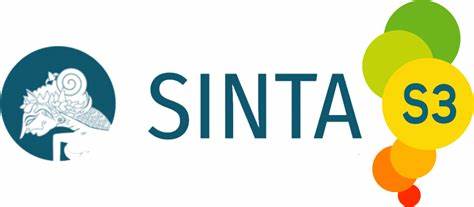THE INCORPORATION OF INFORMATION AND COMMUNICATION TECHNOLOGY TOOLS IN THE PRE-SERVICE LEARNING ACTIVITIES IN A TEACHER’S LESSON PLAN
DOI:
https://doi.org/10.22460/eltin.v9i2.p75-87Keywords:
ICT-based learning activities, ICT tools, Lesson Plan, Pre-Service Teacher.Abstract
The advancement of Information and Communication Technology (ICT) has had a significant impact on the field of education, primarily in the areas of teaching English as a foreign language. However, the incorporation of ICT tools in pre-service teachers’ lesson plans for learning activities is still limited. As a result, the purpose of the research is to determine the types of ICT tools used in learning activities in pre-service teachers lesson plans. To answer the research questions, content analysis is used. The ten lesson plans are organized. The result showed that there are five types of learning activities. YouTube, PowerPoint, PowToon, Proprofs, Seesaw, Instagram, Movie Audio, Vizia, Audiobook, Winamp, and Google Form are among 11 types of ICT tools found in pre-service teacher’s lesson plans. Furthermore, all of the different types of learning activities are identified and listed as follows: 10 listening, 3 speaking, 3 reading, 9 writing, and 6 viewing. This finding suggests that pre-service teachers' lesson plans that incorporate information and communication technology act as content transmitters, presentational devices, and tools for directly engaging pre-service teachers and students on a platform.
Â
Keywords: ICT-based learning activities, ICT tools, Lesson Plan, Pre-Service Teacher.
References
Abbitt, J. T. (2011). Measuring technological pedagogical content knowledge in preservice teacher education: A review of current methods and instruments. Journal of Research on Technology in Education, 43(4), 281–300.
Altam, S. (2020). Influence of social media on EFL Yemeni learners in Indian Universities during Covid-19 Pandemic. Linguistics and Culture Review 4(1), 35-47.
Cohen, L., Manion, L., & Morrison, K. (2020). Experiments, quasi-experiments, single-case research and meta-analysis. Research Methods in Education. https://doi.org/10.4324/9780203029053-23
Drivoka Sulistyaningrum, S., & Herawati, A. (n.d.). The 2 nd International Conference on Informatics for Development 2018 ICT-Based Learning in English Language Education Study Programme.
Fadhilah Hamid, S., & Drivoka Sulistyaningrum, S. (2019). Designing Ict Competences-Integrated Syllabuses Of Speaking Courses (Design And Development Study Of English Language Education Program Syllabuses) (Use Microsoft Word template style: Paper Title). IJLECR-International Journal of Language Education And Culture Review, 5(1), 1-13.
Ghouali, K., & Benmoussat, S. (2019). Investigating the Effect of Social Media on EFL Students’ Written Production: Case of Third-Year EFL Students at Tlemcen University, Algeria. In Arab World English Journal (AWEJ) May 2019 Chlef University International Conference Proceedings.
Harris, J., Hofer, M., Blanchard, M., Grandgenett, N., Schmidt, D., Van Olphen, M., & Young, C. (2010). “Grounded†technology integration: Instructional planning using curriculum-based activity type taxonomies. Journal of Technology and Teacher Education, 18(4), 573-605.
Janssen, N., & Lazonder, A. W. (2016). Supporting pre-service teachers in designing technology-infused lesson plans. Journal of Computer Assisted Learning, 32(5), 456–467.
Janssen, Noortje, Knoef, M., & Lazonder, A. W. (2019). Technological and pedagogical support for pre-service teachers’ lesson planning. Technology, Pedagogy and Education, 28(1), 115–128. https://doi.org/10.1080/1475939X.2019.1569554
Mclean, R., Richards, B. H., & Wardman, J. I. (2007). it a n d h e a l th — v i ew p o i n t it a n d h e a l th — v i ew p o i n t, 187(3), 0–3.
Meredyth, D., Russell, N., Blackwood, L., Thomas, J., & Wise, P. (1999). Real time: Computers, change and schooling. Department of Education, Training and Youth Affairs, Commonwealth of Australia.
Mubarak, A. A. Al. (2016). Learning English as a Second Language through Social Media: Saudi Arabian Tertiary Context. International Journal of Linguistics, 8(6), 112-127.
UNESCO. (2011). Unesco Ict Competency Framework For Teachers.
UNESCO. (2018). UNESCO ICT Competency Framework for Teachers Version 3. United Nations Educational, Scientific and Cultural Organization. Retrieved from https://unesdoc.unesco.org/ark:/48223/pf0000265721
Yaoyuneyong, G., Thornton, A., & Lieu, J. (2013). Innovation and Web 2 . 0 in Business Education : Student Usage , Experiences with , and Interest in Adopting Web 2 . 0 Tools. International Journal of Technology in Teaching and Learning, 9(1), 37–63.





